Controversial but Team Sky’s domination of the Tour de France was a backs to the wall effort
THE machine that is Team Sky with Geraint Thomas in charge won the Tour de France for the sixth time in eight years and after taking victory did something it had not done previously.
THE hate from the outside only enhanced the love from within.
Team Sky was spat at, grabbed, pushed and booed, but at the end of it all the British squad did what it’s not done at six of the last eight editions of the Tour de France.
It won — and it enjoyed it.
This was a 21-day war with the fans as much as their rivals in the peloton, but Sky bonded under the trusted us-against-them formula.
But winner Geraint Thomas is the affable breath of fresh air. The Welshman known as “G” has gone from roadie to lead singer at Sky, and while it would be a lie to say the French public have warmed to him, at least the journey from selfless domestique to Grand Tour champion has a romance the locals can comprehend.
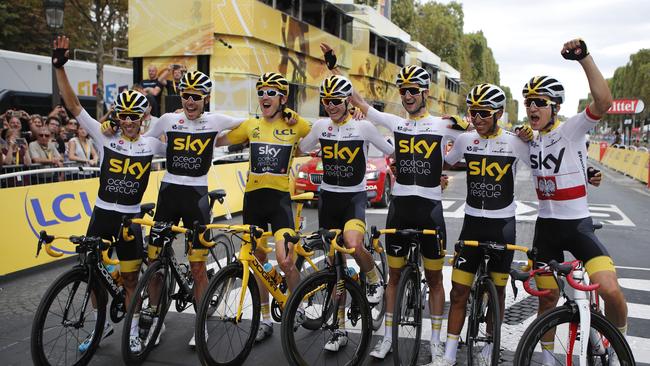
“I think when there is negativity like that it brings us, as a team, closer together. I definitely feel that with the riders,” Chris Froome said.
“We bonded and it felt as if we were out against the rest of the world and we were here to win the race. It’s amazing.
“’G’ pulled through. It’s been more difficult than it was previously and Geraint handled being in the yellow jersey extremely well. I think it’s if you choose to let it get to you.”
This year’s Tour course was seen as a declaration of war on Team Sky. Gravel, short stages that are difficult for general classification teams to control, narrow roads and others exposed to crosswinds. All with teams reduced from nine riders to eight.
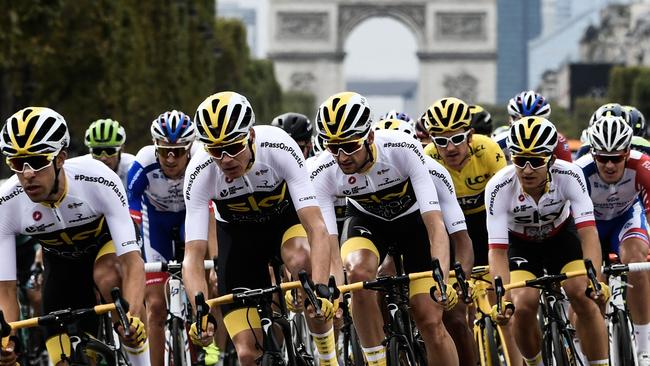
“The French want a French winner,” was Aussie Stuart O’Grady’s take on the 2018 “parcours” before the race started.
But it’s going to take more than revolutionary routes designed to cause chaos and unpredictability to unseat Sky from cycling’s throne.
In a sport without a salary cap, the depth of talent in their squad is the envy of every other team and the withering pace they set on mountain stages doesn’t just discourage rival attacks, it often makes them impossible. It’s a strategy that ensures the race becomes a war of attrition rather than one of spontaneous moves.
This, as much as anything, is what drives the French mad.
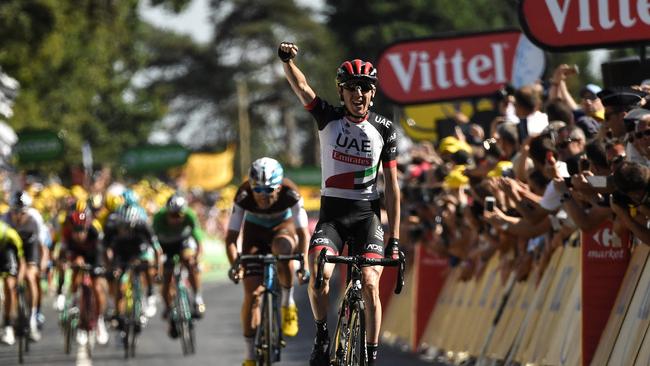
Gritty Irishman Dan Martin, who was given the Tour’s ‘super combative’ prize as the race’s most aggressive rider, frequently threw down the gauntlet to upset the Sky rhythm, but often without success.
Movistar’s three-pronged attack of Nairo Quintana, Alejandro Valverde and Mikel Landa had their moments, but they were fleeting. By the time Lotto-Jumbo duo Primoz Roglic and Steven Kruijswijk got going Sky had their eye in.
In Richie Porte we will never know after the Australian’s Tour-ending crash on Stage 9 for the second consecutive year. At worst he would have been another distraction for Sky. At best he could have won the Tour.
But such is Sky’s strength, there needs to be cohesion and an orchestrated method amongst rivals for these punches to land. And in a race with so many differing objectives and strategies, there is rarely enough common ground to build alliances.
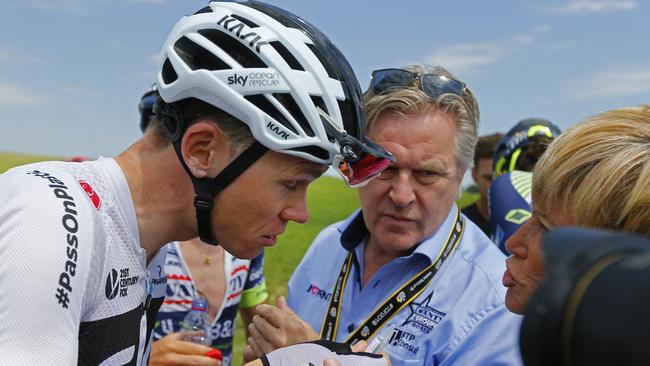
The roadside behaviour and what should be done about it differed wildly amongst the people it effected the most — the riders.
Froome was pushed and spat at, as were several teammates. Thomas was grabbed at in the final metres of Stage 17 and could have been brought down.
Vincenzo Nibali suffered fractured vertebrae after his handlebars got caught in the camera strap of an on-rushing spectator, a flare was hurled into the peloton and protesting farmers blocked the road with hay bales in an incident that saw the peloton accidentally sprayed with tear gas.
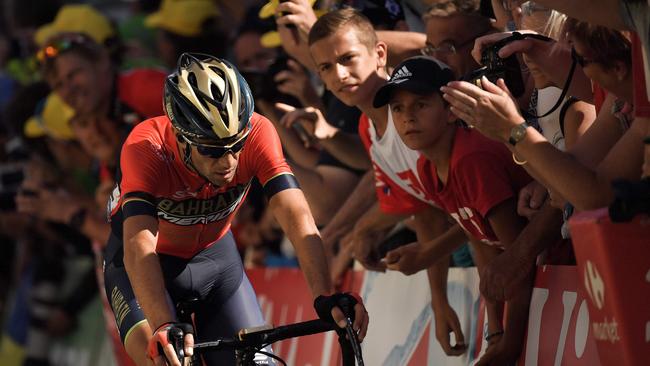
Some riders called for entire climbs — a hotbed for raucous crowds — to be barricaded. It’s hard to argue against doing everything to ensure rider safety, but others claimed fencing entire stretches of road would strip the sport of its unique atmosphere and make it sterile.
As the old saying goes, it only takes a few to ruin it. The problem was that this year there was a few — and then a few more.
Tension grew in the months before this year’s Tour with controversies over the Bradley Wiggins “Jiffy bag” and since December, Froome’s salbutamol case from the 2017 Vuelta a España.
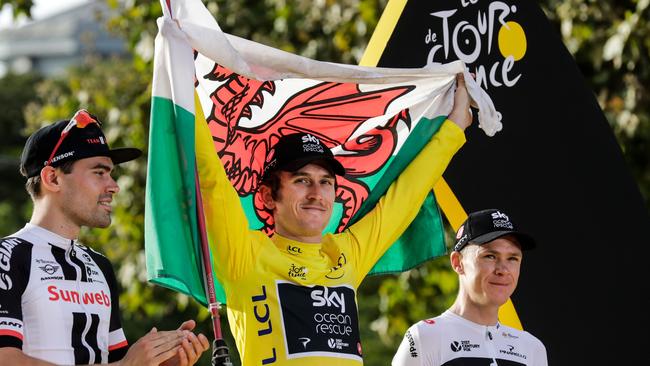
The ASO’s decision to try and block Froome from riding, despite almost certainly knowing that WADA was about to clear him before the race, was seen by many as a deliberate and dangerous move.
By the time French legend like Bernard Hinault called for the peloton to strike if Froome didn’t stand aside, you had an angry hornets’ nest ready to swarm.
Taxi drivers, restaurant owners, local kids riding through small towns; this correspondent would get virtually the same response. “Froomer doper”.
It was enscribed on the road in chalk, written on banners and held up in the crowds.
“There are always going to be haters,” Thomas said. “But we work hard. We strive to be the best we can.
“I don’t know, what can you say? I do it the right way. The team does it the right way. There is nothing I can do to prove it, but it will stand the test of time.”
Originally published as Controversial but Team Sky’s domination of the Tour de France was a backs to the wall effort
